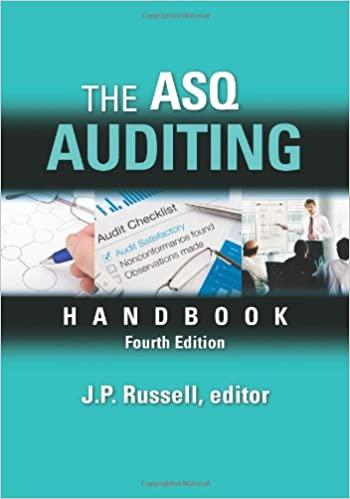Question
CASE STUDY Emergency Power Project Case Study Objectives Upon completion of this case study report, you should be able to: 1. apply engineering economic decision-making
CASE STUDY Emergency Power Project Case Study Objectives Upon completion of this case study report, you should be able to:
1. apply engineering economic decision-making process, 2. prepare a detailed financial analysis report, and 3. provide a professional recommendation on the finding of the study.
As expected, salary and rental would form a significant portion of the operating expenditure. Utilities, transportation, equipment repair and general maintenance also form part of the costs. Other forms of commitment including tax, legal fee etc. is lumped into miscellaneous expenses. All budgeted expenses are tabulated in TABLE 2. For simplicity in analyzing the business profitability, the expenses are calculated based on the budgeted value rather than the actual costs.
TABLE 2: EPSB Original Expenses (monthly estimations)
| Cost Item | Descriptions |
| Shop Rental | RM2000 per month for 3 years and will increase by 10 % in 2021. |
| Utilities & Transportation | 2 % of total revenue |
| Repair & Maintenance | RM500 per month for 3 years and will increase by 10 % in 2021 |
| IT Services | RM300 per month for 3 years and will increase by 10 % in 2021 |
| Staff Salary | RM100 per day for 22 per month for 3 persons in 2018 and increase by 5 % every year onward |
| Owner Salary | RM200 per day for 22 per month for 1 person in 2018 and increase by 5% every year onward |
| Miscellaneous (tax, legal etc.) | RM800 |
Preparation of Business Expansion Brief The company needs your assistance in preparing a business brief to highlight the health of the business and the merit to expand business venture. For the case study provided, you are expected to study and prepare a project brief that must include (but not limited to) the following steps of economic analysis: 1. Summary of project design requirement and constraints.
2. List and discuss project completion alternatives and cost impact.
3. State assumptions and project constraints.
4. Tabulate all costs and benefits expected.
5. Report on comparative analysis of potential options available
6. Identify critical factors that can influence decision through sensitivity analysis
7. Provide recommendation of the most attractive options and indicate potential areas of concern.
Step by Step Solution
There are 3 Steps involved in it
Step: 1

Get Instant Access to Expert-Tailored Solutions
See step-by-step solutions with expert insights and AI powered tools for academic success
Step: 2

Step: 3

Ace Your Homework with AI
Get the answers you need in no time with our AI-driven, step-by-step assistance
Get Started


